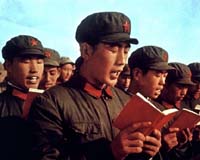| . |  |
. |
Kiev, Ukraine (UPI) Jun 4, 2010 Ukrainian lawmakers Thursday approved a bill that waves goodbye to the country's NATO membership ambition. Promoted by the country's pro-Russian President Viktor Yanukovych, the bill bars membership in any military bloc but allows for cooperation with alliances such as NATO. Upon submitting the bill, Prime Minister Mykola Azarov told lawmakers that Ukraine's foreign policy will continue to be dominated by its "nonaligned status." The legislation would effectively bury the ambitious pro-NATO policies by Yanukovych's predecessor, Orange Revolution hero Viktor Yushchenko. It has to pass a few more readings and needs the president's signature but the bill is widely expected to pass. Yushchenko's stark anti-Russian course helped Ukraine win new friends in Europe but angered Moscow and alienated the country's Russian-speaking community. Since being inaugurated in February, Yanukovych has improved ties with Russia. Russia in April awarded Ukraine gas price discounts worth as much as $45 billion in return for a 25-year extension of the lease on Russia's Black Sea Fleet base in Crimea. At the same time, Yanukovych has been careful not to alienate the West, choosing Brussels as his first foreign trip. Ukraine is still pushing hard for EU membership, which the new bill would allow. Kiev sees the bloc as a key partner to bring to Ukraine further economic growth. Ukraine is already a key energy transit country for the European Union -- nearly 80 percent of Russian natural gas exports to Europe are sent through Ukraine, satisfying one-fifth of the continent's demand. In the past years, gas conflicts between Russia and Ukraine temporarily halted supplies to Europe, damaging Kiev's reputation as a reliable transit country. Yet with Yanukovych in power, officials in Europe hope that price conflicts won't emerge again anytime soon. All three powers might work together to modernize Ukraine's gas transit system. Kiev doesn't have the estimated $600 million such an endeavor would cost and is hoping that a consortium comprised of Ukrainian transit companies, Russian state-controlled energy giant Gazprom and Western European energy companies will modernize the grid. And even Ukraine's cooperation with NATO will continue, officials said. Ukraine has participated in every one of the alliance's major operations of the past years -- in Iraq, Afghanistan, Kosovo and Operation Active Endeavour, the sea-based NATO anti-terror mission.
Share This Article With Planet Earth
Related Links Learn about the Superpowers of the 21st Century at SpaceWar.com Learn about nuclear weapons doctrine and defense at SpaceWar.com
 Chinese military reluctant to forge ties with US: Gates
Chinese military reluctant to forge ties with US: GatesSingapore (AFP) June 3, 2010 US Defense Secretary Robert Gates expressed disappointment Thursday at China's decision to call off his planned visit, saying the country's military was reluctant to engage in dialogue with the United States. Suggesting a rift between Chinese civilian and military leaders on the issue, Gates said it was his "opinion that the PLA (People's Liberation Army) is significantly less interested in ... read more |
|
| The content herein, unless otherwise known to be public domain, are Copyright 1995-2010 - SpaceDaily. AFP and UPI Wire Stories are copyright Agence France-Presse and United Press International. ESA Portal Reports are copyright European Space Agency. All NASA sourced material is public domain. Additional copyrights may apply in whole or part to other bona fide parties. Advertising does not imply endorsement,agreement or approval of any opinions, statements or information provided by SpaceDaily on any Web page published or hosted by SpaceDaily. Privacy Statement |